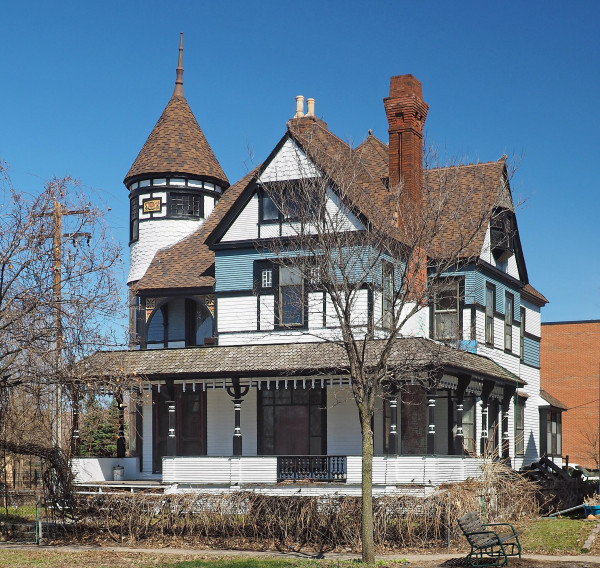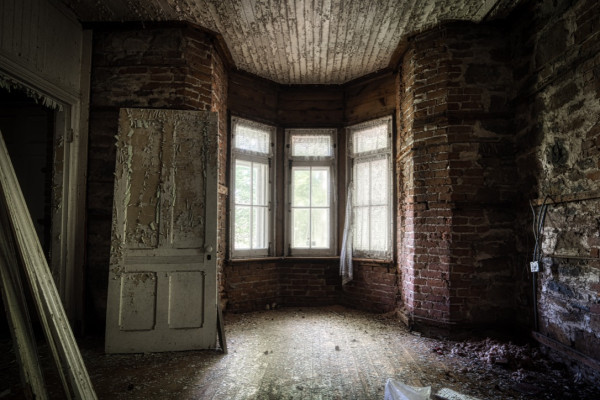Your Step by Step Guide for Investing in an Abandoned Property
Have you ever wanted to buy an abandoned castle, villa, commercial building, or entire town but don’t know the first thing about buying an abandoned property?
May 10, 2024

Have you ever wanted to buy an abandoned castle, villa, commercial building, or entire town but don’t know the first thing about buying an abandoned property? If you are open to investing time and money into an investment, buying an abandoned property may be a dream come true. Local state authorities want to minimize abandoned properties due to related security concerns, decreased neighborhood property values and lost property tax income. Learn how to leverage this to your advantage by researching investment options, seizing the right opportunity, and realizing your vision.
State Statutes
Before doing anything else, you want to determine what unclaimed property laws may influence your investment decision. In the state where your desired property resides, you can browse unclaimed property laws and related government departments by state online using Keane. To obtain additional guidance on relevant unclaimed property information, also consider contacting the Attorney General’s Office in the state where the property is located. Usually, the Attorney General’s office can direct you towards statutes, relevant information, and additional resources to further support you. You can obtain your relevant state attorney general’s contact information on USAGov.
Zoning Restrictions
Once you check on state regulations, your next step is looking into local regulations. Just when you think everything will be smooth sailing, you may be impacted by municipal or local zoning restrictions that prevent you from making an investment you desire. Zoning restrictions not only regulate how properties can be used within a geographical area but also limit industrial or commercial land use in residential neighborhoods. For example, if you have intentions to buy farmland and convert it into a residential property, it may not be feasible because of various zoning restrictions. Alternatively, if you purchase a property built over land that the local government has future plans to convert into a major road, your investment may go down the drain. Once you identify the property you would like to buy, avoid these obstacles by scheduling a meeting with the local zoning officer to determine the state’s long-term land and road plans.
Check for defects
As you might expect, most abandoned properties will be in a dilapidated condition with obvious and undiscovered defects. Before you consider buying, obtain a professional property inspection to evaluate structural, plumbing, electrical, roofing, window, and safety concerns. Including an additional 20% contingency plan for unexpected costs, if your total renovation cost estimate aligns with your budget you may have a winner!
Market Analysis
Before committing to an investment opportunity, proactively compare several options in your desired area. Consider talking to local residents, authorities, and realtors to get an understanding of the market. Once you have a better grasp on the current and projected property values, also attend property auctions or examine foreclosure listings with a local bank. To compare bank rates and determine the best financial solutions for you, check out bankrate.com. Once you understand the market, the next biggest challenge is usually determining the property’s private or state ownership. In most American states, obtaining ownership of an abandoned property involves a long process of complying with the legal departments, owners, and authorities; furthermore, arranging various loans and property analyses. Sign a deal only if the property can legally be transferred to your name and if it falls within budget.
Accessibility
Even if you find an abandoned property for a great deal, you may not be able to buy if you need to live in it immediately or be in close proximity to local amenities. Before investing, consider nearby schools, hospitals, grocery stores, and public transportation options. Next research local crime rates, community culture, and amenity conveniences to determine if the investment is right for you.
Now that you have done your due diligence on researching your potential investment, the choice is yours whether or not to take it! No matter what you decide, don’t get discouraged – abandoned treasures exist all around us and there are plenty of resources to help you along the way.

The Marrian Moyer House: A Monument to Past Lives and Architectural Creativity
Join us for a tour of our Marrian Moyer House, a place where the past is still visible in the stained-glass windows and the exquisite woodwork. Learn about the occupants of this home and how they lived in this grand example of early 20th century architecture.

The Legg House: A Victorian Survivor on Park Avenue in Minneapolis
Once home to a diamond merchant, a neighborhood doctor, and even tied to a national FBI case, the Legg House remains one of Minneapolis’ last colorful Victorian survivors.

Simple Steps to Buy an Abandoned Property in the US
According to the Washington Post, approximately 1.5 percent of all residences in the United States are currently vacant even though the majority of housing markets are lacking homes for sale.

How to Renovate Abandoned Properties
During your life you have probably come across one or two abandoned properties you have considered buying or selling.